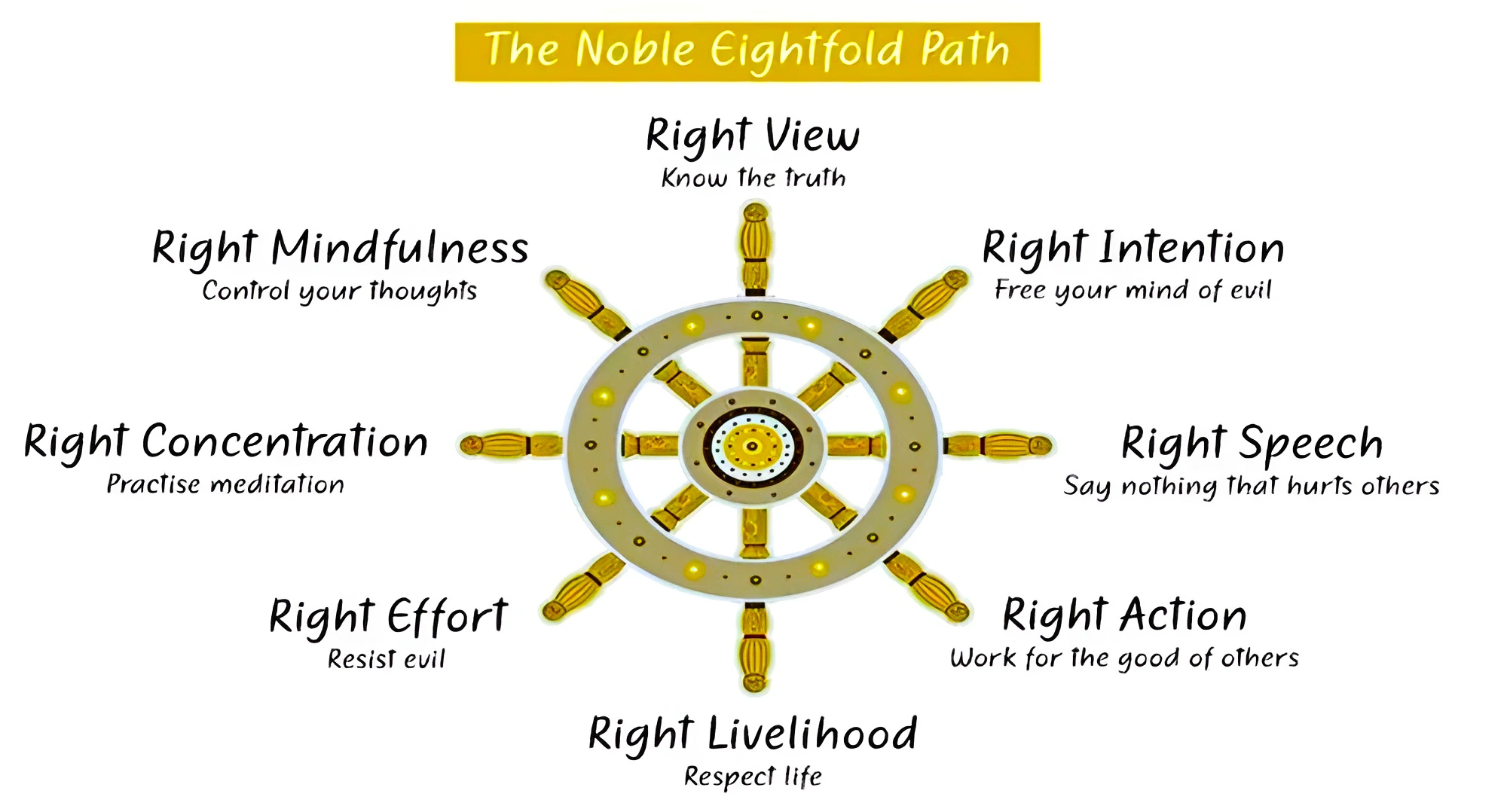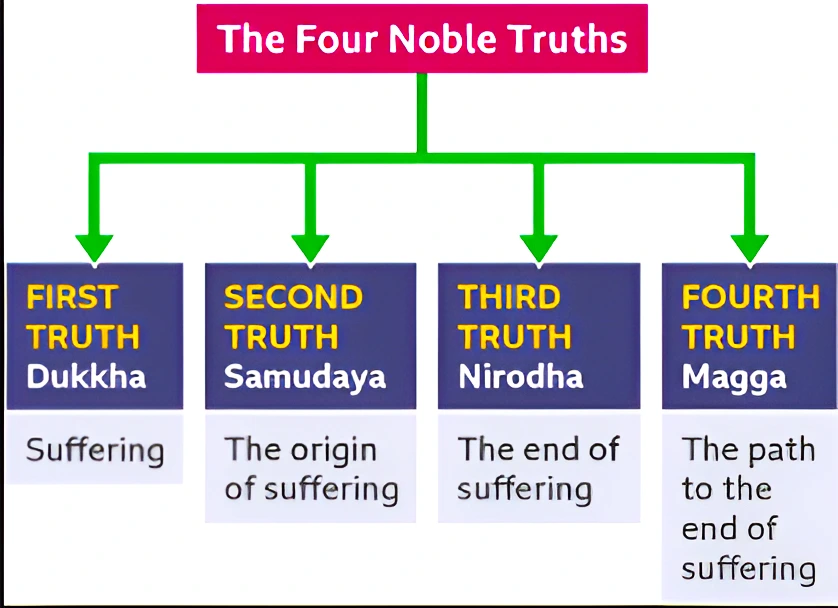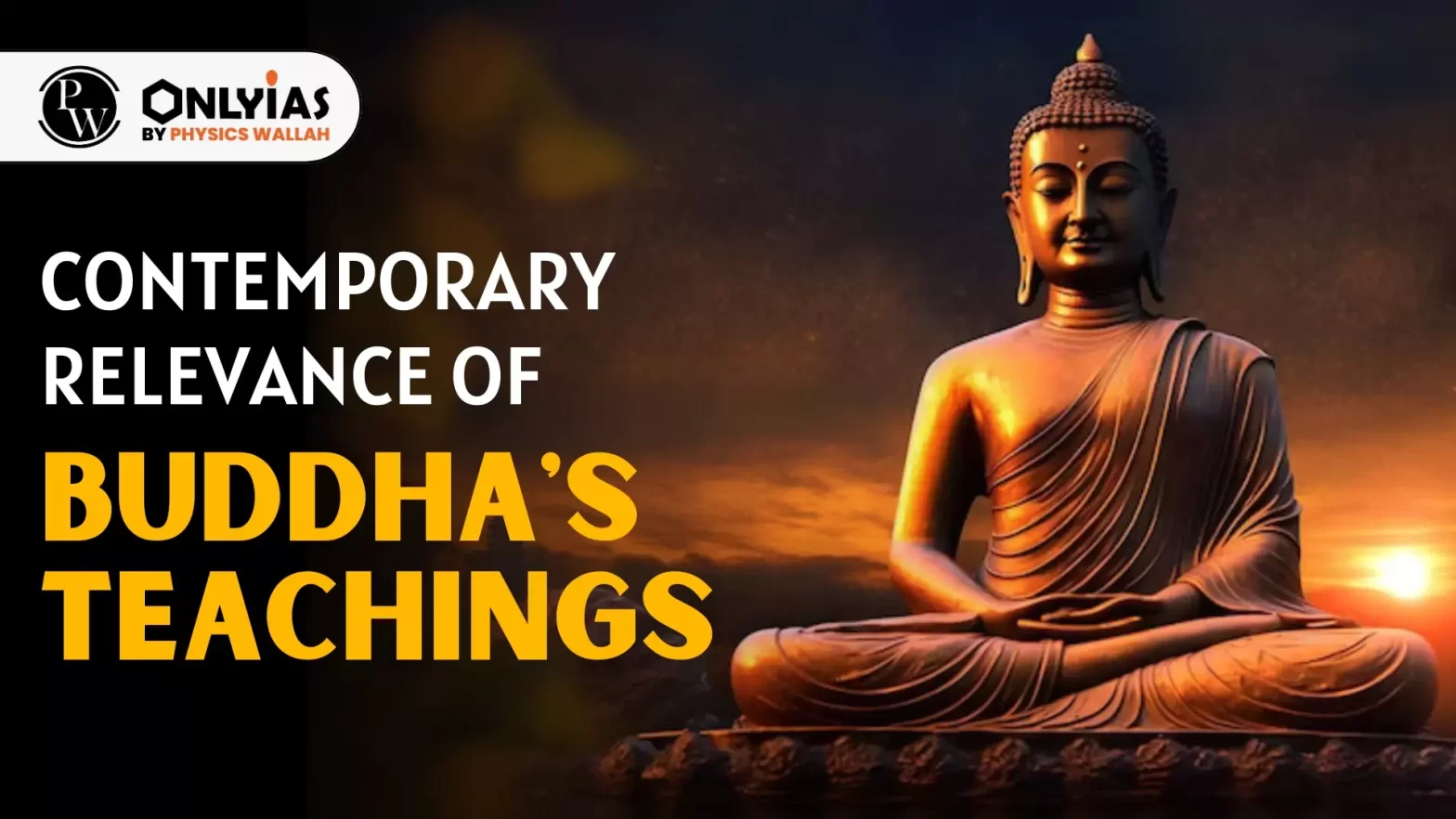Context:
This article is based on the news “Buddha’s teachings are not relics of the past, but a compass for our future – VP” which was published in the PIB. Recently, the 12th General Assembly of the Asian Buddhist Conference for Peace (ABCP) was inaugurated in New Delhi by the Vice President of India.
- The Vice President said that Buddhism was born in India and was spread to different parts of the world, it carried a message which is relevant for everyone in contemporary time.
About Asian Buddhist Conference for Peace (ABCP)
- Founded in: ABCP was founded in 1970 at Ulaanbaatar, Mongolia as a voluntary movement of followers of Buddhism with both monastic (monks) and lay members.
- Headquarter: Ulaanbaatar, Mongolia.
- Theme: “ABCP – The Buddhist Voice of Global South.”
- Members: ABCP had members from South Korea, Bangladesh, Nepal, India, Central Tibetan Administration in Dharamshala, Sri Lanka, Vietnam, Laos, Cambodia, Japan and Russia etc.
India: The Land of Buddhism
- Genesis of Buddhism: India is known as the ‘Land of the Buddha’ as Gautam Buddha founded Buddhism about 2,500 years ago in this region. India stands as the homeland of Bhagwan Buddha, a nation that has contributed ‘Buddha’ to the world rather than ‘Yuddha’ (war).
- Buddhist Structures: A number of Buddhist Stupas, Viharas , Chaityas, Pillar and Rock Edicts have been built during the reign of Mauryan kings, Gupta rulers and Satvahana rulers in ancient India.
- A Stupa preserve relics and different religious object.
- Major Rock Edicts and Major Pillar Edicts mentioned the teachings of proper behaviour and non violence under the general concept of “Dharma”.
- Buddhist Population: With a global populace of nearly 500 million, Buddhism is the 4th largest religion in the world.
- Majority of the Buddhists live in China (50%), Thailand (13%), Japan (9%), Myanmar (8%), Sri Lanka (3%), Vietnam (3%), Cambodia (3%), South Korea (2%), India (2%) and Malaysia (1%).
- Buddha’s Teachings: It serve as inspiration for India’s service-driven governance, emphasizing citizen welfare and inclusivity, from farmers to the vulnerable and the differently- abled.
- This commitment extends to environmental sustainability, where the interconnectedness of all life shapes India’s advocacy for a greener future.
The world faces challenges that are universal and call for concerted efforts on the issues like climate change, conflict, terrorism or poverty.
Also Read: Buddhist Monuments Of South India
About Gautam Buddha
- Gautam Buddha was born at Lumbini (in present Nepal) in 563 BC as Siddhartha Gautam, to mother Maya and father King Suddhodana of the Sakyan kingdom under Kshatriya clan.
- He was married to Princess Yashodhara and had a son named Rahul.
- At the age of 29, he left his house to find the truth of life and he wandered as an ascetic for next 6 years.
- Then, he came to Gaya (Bihar) and sat under a pipal tree. There he discovered the truth, the secret of happiness.
- At the age of 35, he attained enlightenment (Nirvana) under that pipal tree and became the Buddha, the Enlightened One.
|
Conference Coincides with Rising Contemporary Issues
- Rising Global Conflicts: Notable events include recent strikes between Iran and Pakistan, the enduring Israel-Palestine Conflict and tensions between Russia and Ukraine.
- Concerns arise on balancing military actions with concerns for soldier’s safety and civilian casualties.
- According to the Institute for Economics and Peace’s annual Global Peace Index, more than 238,000 people died in global conflict last year, with Russia’s invasion of Ukraine resulted in at least 82,000 deaths in 2022.
- For example, this dilemma is witnessed by the challenge of combating Hamas while ensuring humanitarian assistance to the people of Palestine.
- Climate Change Challenges: Climate change has been described as a “perfect moral storm” because it brings together three major challenges to ethical action:
-
- Climate change is a truly global phenomenon with skewed vulnerabilities, at least in the short- to medium-term.
- Current emissions have profound intergenerational effects.
- Theoretical tools are underdeveloped in many areas, such as international justice, intergenerational ethics, scientific uncertainty, and the appropriate relationship between humans and the rest of nature.
- Terrorism Trends: Amid rising global disorder, terrorists have emboldened terror attacks across the world.
- For instance, The tenth annual edition of the Global Terrorism Index (GTI)-2023 reveals attacks are more deadly with 26% more people dying in each incident – the first rise in lethality in five years.
- Growing Poverty and Inequality: Ethical concerns arise from the persistence of poverty, increasing inequality, and human deprivation stands against human decency, human rights, and basic claims of distributive justice.
- Oxfam’s findings reveal extreme wealth and extreme poverty have sharply increased simultaneously. In 2022, nearly 670 million people were estimated to be living in extreme poverty, and since 2020, the richest 1% have captured almost two-thirds of all new wealth.
- Further, the world could see its first trillionaire within the next decade, according to an assessment of global inequalities published by Oxfam International.
- Challenges Faced by Youth of the World: Substantial anxiety and stress about jobs, long-term financial stability and the current economy and job market are primary sources of uncertainty for this generation, according to EY’s 2023 Gen-Z Segmentation Study.
Relevance of Buddha’s Teachings in the Contemporary World

- Overcoming Individual and Global Conflicts Through Four Noble Truths and Eightfold Path: Embedded in the fabric of our world, Buddha’s timeless wisdom provides a transformative roadmap for individuals and nations grappling with today’s conflicts.
- The international community is prompted to uphold ethical standards, fostering a world where conflicts are resolved through compassionate dialogue rather than resorting to violence.
- Overcoming Terrorism Through Dharma and Harmony: “May those who fight with arms in hands meet with flowers”. Dharma is the doctrine, the universal truth common to all individuals at all times, and Buddhist stupas, chants and festivals echo as a symbol of Buddha’s message in contrasts with the forces of hate and terror threatening our world.
- Buddha’s teachings serve as an unwavering rejection of violence and hatred, providing a framework for countering terrorism with compassion and peace.
- Addressing Existential Challenges: The principles of Buddha serve as a beacon of hope, fostering convergence among stakeholders on a common platform.
- By applying Buddha’s principles, nations are encouraged to work collaboratively, adopting ethical practices that safeguard the environment for current and future generations.
- At the 12th General Assembly of ABCP, the leader defined Delhi declaration calling on leaders and nations around the world to end wars as the biggest takeaway of the event.
- Tackling Climate Change Through Shared Heritage and Well-being: The shared heritage, intertwined with faith, culture, and love, forms an unbreakable bond. In a divided world, Buddha’s wisdom urges to follow the light of tolerance, justice, and a shared commitment to peace, fostering a future where all flourish and virtues shine.
 Tackling Poverty and Inequality: Lord Buddha taught us, “Bhavatu Sabb Mangalam”, which means blessings, compassion and welfare of all. Buddha’s teachings centered on the alleviation of suffering, inspire efforts to promote an equitable distribution of resources and work towards distributive justice.
Tackling Poverty and Inequality: Lord Buddha taught us, “Bhavatu Sabb Mangalam”, which means blessings, compassion and welfare of all. Buddha’s teachings centered on the alleviation of suffering, inspire efforts to promote an equitable distribution of resources and work towards distributive justice. -
- Efforts towards social justice and inclusivity become ethical imperatives in line with Buddha’s teachings, creating a more ethically just world.
- Middle Path as the Compass for the Future: Buddha’s teachings are not relics of the past but a compass for our future. In a rapidly changing landscape, his Middle Path – emphasizing friendship, moderation, and reverence for all life – presents a sustainable course for both humanity and our planet.
- Coping With Stress: Buddha’s Teachings present useful ways to cope with stress by calming the mind, controlling negative emotions and feelings through meditation, and developing wisdom and insight in order to purify the mind to be free from stress and sufferings through insight meditation.
- Buddha’s Teachings provide practical ways such as breathing meditation (Ãnãpãnasati) for coping with various problems that cause stress with mindfulness and consciousness.
![]() 20 Jan 2024
20 Jan 2024


 Tackling Poverty and Inequality: Lord Buddha taught us, “Bhavatu Sabb Mangalam”, which means blessings, compassion and welfare of all. Buddha’s teachings centered on the alleviation of suffering, inspire efforts to promote an equitable distribution of resources and work towards distributive justice.
Tackling Poverty and Inequality: Lord Buddha taught us, “Bhavatu Sabb Mangalam”, which means blessings, compassion and welfare of all. Buddha’s teachings centered on the alleviation of suffering, inspire efforts to promote an equitable distribution of resources and work towards distributive justice.